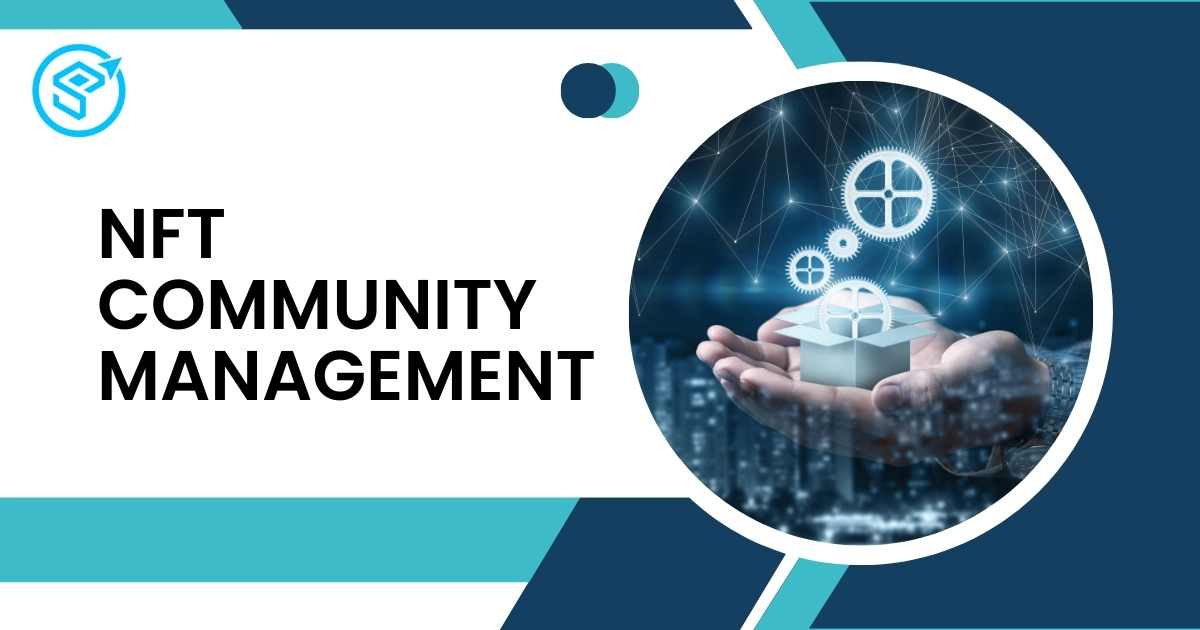Digital Marketing Learning Path provides an engaging and comprehensive overview of the fundamentals of Digital Marketing. It covers everything from SEO and content marketing to social media, email marketing, and analytics. With plenty of hands-on exercises, practical tips, and real-world examples, this Learning Path will give you the skills and confidence you need to become an expert in Digital Marketing and so on.
Table of Contents
Fundamentals of Digital Marketing Learning Path
Digital marketing is one of the hottest topics in the marketing world today. It is a powerful tool for reaching and engaging with customers, and it can be used to create an effective marketing strategy. Because of its importance, learning the fundamentals of digital marketing is essential for any business.
The Fundamentals of Digital Marketing Learning Path is a comprehensive guide to understanding the basics of digital marketing. It covers the key topics of digital marketing, such as search engine optimization (SEO), pay-per-click (PPC) advertising, social media marketing, email marketing, content marketing, and more. The learning path provides an in-depth look at each of these topics, as well as helpful tips, resources, and case studies to help you understand how to implement digital marketing strategies.
The Fundamentals of Digital Marketing Learning Path is designed to be a step-by-step guide to mastering the essentials of digital marketing. It provides an overview of each topic and then drills down into the details, so you can gain a comprehensive understanding of digital marketing. It also covers the latest trends and techniques, so you can stay up to date with the ever-changing digital marketing landscape.
This learning path is ideal for anyone who wants to learn the basics of digital marketing, from entrepreneurs and small business owners to corporate marketing departments. It is also a great resource for those who want to brush up on their digital marketing skills or get up to speed on the latest trends.
What are the key areas of Digital Marketing
Digital marketing is an integral part of any successful business or organization. It involves the use of various online channels and tools to reach potential customers and promote products and services. The key areas of digital marketing include search engine optimization (SEO), content marketing, social media marketing, email marketing, display advertising, mobile marketing, and analytics measurement.
Search Engine Optimization (SEO)
Search engine optimization (SEO) is an important part of any digital marketing strategy. It’s a complex topic and there is a lot to learn. If you’re just starting out with SEO, it can be overwhelming. To help you get started, this blog post outlines the different elements of SEO and provides a learning path to help you gain the necessary knowledge and skills.
First and foremost, it’s important to understand the basics of SEO. This includes understanding how search engine algorithms work and how to optimize your website for search engine rankings. This means understanding topics such as keyword research, on-page optimization, content optimization, link building, and more.
Once you have a good understanding of the basics, you can start to dive deeper into the various elements of SEO. This includes understanding the different types of content that can be optimized for search engine rankings, such as blog posts, webpages, videos, and images. It also means understanding how to effectively use keywords, optimize content for search engine visibility, and build quality inbound links.
It’s important to stay up-to-date on the latest trends and best practices in SEO. It also means staying abreast of the latest tools and techniques available to help optimize your website for search engine rankings.
By following this learning path, you can gain the knowledge and skills needed to become an effective SEO practitioner. With the right knowledge and skills, you can help your website achieve higher search engine rankings, drive more organic traffic, and increase conversions.
Content Marketing
Content marketing is a powerful strategy for any business looking to build an engaged audience and generate leads. With so much information out there, it can be difficult to know where to begin. A content marketing learning path can help you get started.
The content marketing learning path should start with the basics. Learn about the different types of content marketing, including blog posts, social media, video, and email marketing. It’s also important to understand how to create compelling content that will capture your audience’s attention.
Develop a content plan that outlines what type of content you will create and when. This will help you stay organized and ensure that you’re creating content that is valuable to your audience. It’s also important to learn how to measure the success of your content, so you can make improvements over time.
Once you’ve developed a content plan and have a better understanding of the basics, you can start to get more creative with your content marketing strategy. This could include experimenting with different formats, such as podcasts and webinars, or developing new content ideas that are tailored to your audience.
By following a content marketing learning path, you’ll be able to develop a strategy that is tailored to your business and audience. This will help you create content that resonates with your audience and drives results.
Social Media Marketing
Social media marketing is an increasingly popular marketing strategy used by businesses of all sizes. It’s a powerful tool that allows businesses to reach their target audiences, build brand awareness, and generate leads.
Social media marketing involves creating and sharing content across multiple platforms, including blogs, Instagram, Facebook, Twitter, YouTube, and LinkedIn. This content should be engaging and informative and should be tailored to the interests of the target audience. Businesses should also take advantage of social media advertising, which can help to increase brand visibility and reach potential customers.
When implementing a social media marketing strategy, it’s important to set goals and measure performance. This can be done by tracking website traffic, followers, likes, and engagement rates. The key to successful social media marketing is to be consistent, post regularly, and interact with followers. By taking the time to develop and implement a social media strategy, businesses can reap the rewards of a successful online presence.
Email Marketing
Email marketing is a powerful tool for business owners to reach their target audience. It allows them to build relationships with customers, reach new potential customers, and drive sales.
The key to successful email marketing is to create messages that are relevant and engaging to your target audience. You should provide content that is valuable and that resonates with your readers. You should also personalize your emails so that they feel like they are being addressed to each individual reader.
When creating your emails, be sure to use a strong call to action. This should be included in the subject line and the body of the message. The call to action should tell your readers what you want them to do and why they should do it.
Another important element of email marketing is segmentation. Segmentation allows you to send emails to different subsets of your audience, tailoring the message to their interests. This helps to ensure that your emails are as relevant as possible and that you are reaching the right people with the right message.
Email marketing can be a great way to build relationships with customers and increase sales. By creating engaging content, using a strong call-to-action, segmenting your audience, and tracking your results, you can ensure that your email campaigns are effective.
Display Advertising
Display advertising is an important form of digital marketing that involves creating and placing ads on websites and other online platforms. It is a cost-effective way for businesses to reach their target audiences, as it allows them to target specific demographics and behaviors. With display advertising, marketers can create visually appealing and engaging ads that are customized to the user’s interests.
Additionally display ads can be tailored to different devices, such as desktop, mobile, or tablet, ensuring that the message is seen in the most effective way.
Display advertising also offers a wide range of options for businesses, from text-based ads to interactive banners, videos, and more. By taking advantage of the latest technologies, marketers can ensure that their display ads are seen by the right people at the right time.
Mobile Marketing
Mobile marketing has become a powerful tool for today’s businesses. From SMS campaigns to in-app notifications, mobile marketing allows businesses to reach their target audiences in a way never before possible.
The key to successful mobile marketing is understanding how to best use mobile devices to engage customers. By creating a mobile-friendly website, businesses can provide an easy-to-navigate website that allows customers to quickly access the information they need. Additionally, businesses can develop apps to engage customers with interactive experiences, such as coupons and contests.
SMS campaigns are another powerful mobile marketing tool. By sending targeted SMS messages, businesses can reach out to their customers in a personal way, offering discounts and deals as well as helpful product information.
Overall, mobile marketing is a powerful tool that can be used to engage customers in a more personal way. By creating a mobile-friendly website, utilizing SMS campaigns, and leveraging in-app notifications, businesses can reach their target audiences in a way never before possible.
Analytics Measurement
Analytics measurement is an invaluable tool for businesses of all sizes in today’s digital age. It is a way of evaluating, analyzing, and understanding the data collected from various sources, such as web traffic, customer purchases, website usage, and so on. By understanding the data, businesses can gain insight into customer behavior, allowing them to make better decisions and improve their overall performance.
Analytics measurement can help businesses identify areas of improvement, develop strategies, and determine the effectiveness of their marketing efforts. It can also help companies measure the success of their SEO campaigns and track the performance of their websites.
Analytics measurement also helps companies better understand their customers and make better decisions when it comes to creating campaigns, targeting audiences, and improving customer experience. With the insights gained from analytics measurements, companies can create more effective and personalized marketing strategies that will help them reach their desired goals.
Analytics measurement is an essential tool in today’s business world. By understanding and analyzing the data collected, businesses can make better decisions, improve customer experience, and increase their overall performance.

Differences between Traditional and Digital Marketing Learning Path
Traditional marketing and digital marketing are two different approaches to achieving the same goal to reach and engage with potential customers. While both approaches are used to build brand awareness and increase sales, they can vary greatly in terms of cost, reach, and effectiveness.
Traditional Marketing
Traditional marketing is a more traditional approach that focuses on print, broadcast, and direct mail campaigns. It’s often a more expensive option, but it can be effective in reaching a large, targeted audience. It can also be used to build brand recognition by creating a unified message across all platforms.
Digital Marketing
Digital marketing on the other hand, is an approach that focuses on the use of digital channels, such as websites, search engines, email, and social media, to reach potential customers. This approach is often more cost-effective and can be more effective in reaching a wider, more targeted audience. However, it’s important to remember that digital marketing requires a more detailed strategy and ongoing optimization to be successful.
In terms of learning paths, traditional marketing typically requires more formal education, such as a degree or certificate program. Digital marketing learning path on the other hand, can be learned through a combination of self-study and guided courses. It’s important to remember that both approaches require an understanding of the target audience and the ability to develop effective marketing strategies.
Traditional and digital marketing learning paths are both important approaches that can be used to reach and engage with potential customers. While traditional marketing can be more expensive, it can be effective in reaching a large, targeted audience. Digital marketing is often more cost-effective and can be more effective in reaching a wider, more targeted audience.
Read Our such article digital marketing podcasts
Develop a Digital Marketing Plan: Digital Marketing Learning Path
A digital marketing plan is an essential part of any successful business, as it helps to create a clear and structured approach to grow and promote a brand, product, or service. A digital marketing plan should include objectives, strategies, tactics, and metrics to track and measure progress throughout the life of the plan.
The plan should also include budgeting for digital marketing activities, such as website development, content creation, social media campaigns, and more. Implementing a digital marketing plan can help businesses reach more customers, increase conversion rates, and build brand recognition.
The best digital marketing plans take into account the customer’s journey, from initial discovery to purchase, in order to create a more customized and effective experience.
Final Thought
Digital marketing learning path is an ever-evolving field, and it is essential for those who want to stay competitive and up-to-date in the industry to stay informed and educated.
With the right digital marketing learning path, individuals can gain the knowledge and skills necessary to develop successful campaigns and strategies that will help them reach their business goals.
By taking the time to understand the different digital marketing learning path elements, staying current with industry trends, and learning from experienced professionals, digital marketers can ensure that their campaigns are successful and effective.







 Content Writing
Content Writing Digital Marketing
Digital Marketing Web3 Marketing
Web3 Marketing Marketing Automation
Marketing Automation Community Building
Community Building